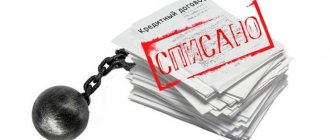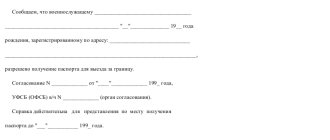General provisions
If a child support debtor dies, who pays the debt?
This question arises among recipients of funds quite often, and therefore it should be considered in more detail. The termination of alimony payments due to the death of the payer is a fact prescribed by law. Therefore, on the one hand, the heirs have nothing to worry about. However, if during his lifetime the alimony provider has arrears in payments, which often happens, then the situation changes radically.
The current legislation comprehensively protects the rights of minors, and therefore the child claims to pay the financial support debt in full. And if the debtor dies, then his debt obligations are transferred to his heirs. In jurisprudence, death is a decisive factor in changing the legal relationship between the deceased and other persons.
We can talk about:
- termination of obligations (as in the case of paying alimony);
- their occurrence (we are talking about material assistance from the state for burial);
- shifting to heirs and relatives (if the deceased has debts).
But when resolving issues related to alimony, everything turns out to be far from so simple. In practice, lawyers are not always able to accurately answer regarding the payments that are due to the recipient of funds.
Regarding Article 120 of the RF IC, termination of alimony obligations is possible in the following cases:
- when the child reaches adulthood;
- as a result of the death of one of the parties;
- ceasing to be in need or gaining the ability to work;
- adoption or adoption, when the responsibility for maintaining a minor is transferred to the new parents.
Thus, the heirs cannot be obligated to look after the child of the deceased payer, and it will not be possible to receive alimony by inheritance. Regarding debts, please refer to Article 1112 of the Civil Code. It states that inheritance means both the property and the obligations of the deceased, including debts.
Therefore, from the moment the will comes into force, the debt will be distributed among the heirs in relation to their shares and priority.
If there are several heirs
The law stipulates that when there are 2 or more heirs, they are jointly and severally liable for debts. If the inheritance is divided between the heirs in equal shares, then the debts will be divided in the same way.
If the shares of the inheritance are different, then the debts will be divided in proportion to the inherited property.
Before entering into an inheritance, an assessment of the inherited property occurs, therefore, at the time of entering into an inheritance, each heir knows the exact amount of the inherited property, within which he will be liable for debts.
What to do if the debtor dies
If the alimony payer has died, the recipient of the funds should notify the bailiff in charge of the case. This is necessary in order to prevent a further increase in the amount of debt. If the alimony holder dies, then to confirm this fact, his ex-wife should have a copy of the death certificate in her hands.
The next stage is writing an application addressed to the bailiff with a request to calculate the amount of debt that arose at the time of the death of the payer.
Based on this certificate, you can go to court to collect the debt from the defendant’s heirs. Regarding Article 1175 of the Criminal Code, they are jointly and severally liable, which is directly proportional to the share they received as a result of inheritance.
The basis for a claim may be Article 1102 of the Civil Code of the Russian Federation, which deals with illegal enrichment by ignoring alimony obligations.
The following documents are usually used as evidence:
- A court order or court decision regarding alimony payments. A notarized alimony agreement is also equivalent to a writ of execution.
- Bailiff's papers, which contain information about the opening of enforcement proceedings, the amount, procedure and regularity of depositing funds, as well as the amount of the total debt that arose during the life of the payer.
- Other documents, including bank statements, certificates, receipts, receipts and checks, as well as payment orders.
Death of the collector
Unfortunately, the claimant of alimony payments may also die before the minor turns 18 years of age. Contrary to existing opinion, in this case the payment of alimony does not stop, since the new guardians of the child can formalize the receipt of alimony and the collection of all debts.
We invite you to read: Letters about money transfers and inheritance are received in the mail
If the judicial authority makes a positive decision, the bailiffs will form a new writ of execution, which will contain information about new claimants of alimony for a minor.
However, if the deceased is a child or another person to whom the funds were transferred, then the payment of funds stops without the possibility of their restoration. In this case, alimony arrears are also cancelled, and nothing is paid to the heirs.
In this case, it does not matter who exactly was listed as the recipient of the funds according to the documents.
After the death of the father, as stated above, no one will pay monthly for the child. But someone, under certain conditions, will have to pay the debt on them. Who will be appointed as the new debtor?
Let's turn to Art. 1112 of the Civil Code of the Russian Federation. It states that in the process of inheritance the following passes from the testator to the heir:
- property;
- property rights and obligations.
That is, alimony debts are also included in the inheritance.
Practice shows that heirs often try to evade fulfillment of the obligation that has arisen, trying to prove that it is very closely related to the personality of the deceased payer of the funds. But judges, in the overwhelming majority of cases, come to the conclusion that the obligation to make regular payments is closely related to the identity of the payer. But the debt formed during his lifetime no longer has such a connection.
In general, if the child’s father incurred a debt for alimony during his lifetime, then this debt will necessarily be included in the inheritance. There is no point in disputing this. It will just be a waste of money and time.
Thus, if the person paying alimony has died, then the recipient of the funds will not be able to count on new payments if there is no debt. If it does occur, then the heirs will be required to repay the debt.
Let’s digress a little from the situation when the payer of the funds dies in order to examine pressing issues related to the death of the debtor.
Several problems and pressing issues can be identified in this topic:
- who exactly is the claimant;
- what to do if the legal representative of a minor has died?
Let's try to answer these questions.
Not everyone and does not always interpret the provision of the RF IC that payments stop due to the death of the claimant correctly. This is due to the fact that in enforcement documents the legal representative of the child, to whom the debtor is obliged to pay funds, is called the collector. In essence, the recipient of the money is the child.
However, some actions must be taken in such a situation. There may be several options:
- the child begins to live with his father;
- he is assigned a new guardian.
If the child settles with the father, then there is no need to fulfill the alimony obligation. The father will be obliged to support the minor, but without any agreements or writs of execution.
If a guardian, for example, a grandmother, is appointed for a son or daughter, then this guardian must file a lawsuit to replace the claimant. This claim will be satisfied without any questions asked. Next, the decision will be executed: the money will be paid to the grandmother so that she can spend it in the interests of her grandson or granddaughter.
So, if the estate includes a debt for alimony that arose during the life of the testator, then the heir will have to pay it off, unless, of course, he himself is the recipient of the funds. There are some features:
- debt repayment is carried out in proportion to the received property;
- the debt is paid, as it were, from the inheritance mass.
That is, firstly, if there are several heirs, then the amount of debt is divided among each, in proportion to the property that belonged to the debtor who died. Secondly, when paying money, you need to focus on the value of the property received.
For example: the inheritance estate included a car worth 100,000 rubles and arrears of alimony payments in the amount of 200,000 rubles. The heir is obliged to repay the debt in the amount of 100,000 rubles, no more.
In general, the first thing the heir to whom property rights and obligations are transferred after the testator - the debtor under the decision to collect alimony - needs to do is contact the FSSP body. If the bailiffs do not have information that the original payer has died, then the amount of the debt will increase. And this is unacceptable. It is impossible to continue to accrue debt in the name of the deceased.
We invite you to read: The right to alimony from your ex-spouse
The method is very simple, and it is perhaps the only legal one: you must not enter into an inheritance. Of course, when making a decision you need to take into account all the points:
- composition of property;
- amount of debt;
- the number of heirs and the size of their shares.
If accepting an inheritance does not bring an increase in property, then you should go to a notary and write a waiver. Accordingly, the debt cannot be recovered from the abandoned heir.
This question worries many recipients of alimony, especially if the other party does not particularly bother to preserve their life and health.
Often, neglect of life (alcoholism, extreme hobbies) is also associated with debts to pay alimony. In addition, often after a divorce the payer manages to start his own family and children, whose interests also need to be taken into account.
This is where the most difficult part comes, since each judge sees the solution to the problem in his own way. On the one hand, payment of benefits is a personal matter for the payer; they do not apply to his family or relatives, to whom the inheritance and his debts go after death. On the other hand, this is still a lot of money that needs to be paid, but not from the funds of the heirs, but from the remaining inheritance.
Take note: a minor child, even from another marriage, is included in the category of compulsory heirs and can claim a compulsory share.
If both it and the debt are large, this may affect the heir’s new family, especially if there are children in it - the court is obliged to respect their interests on an equal basis with the child from the first marriage.
Sometimes the court may consider that the part of the inheritance that is due to the child is quite sufficient to provide for it, and therefore the debt for financial assistance can be canceled. In other situations, the judge may decide that the alimony debt is not personal, and therefore should be completely or partially written off from the heirs.
Particularly difficult are more complicated situations, for example, when inherited real estate is seized due to non-payment of alimony. If one of the parties does not agree with the court's decision, they can file an appeal and documents in the higher court, and the decision will be changed.
Unfortunately, even the most experienced lawyers cannot always accurately predict the outcome of a case. They can only help achieve the most fair and beneficial decision or appeal it later.
How to go to court
The heirs of the alimony holder must pay off the debt. You should not wait until the recipient files a lawsuit to force the collection of funds.
In addition, due to the cessation of money flow, the accumulation of fictitious debt is possible. It can subsequently be challenged in court by providing a death certificate of the payer, but this will require a lot of time.
Therefore, it is advisable to deal with material issues immediately after entering into inheritance rights. If the heirs do not make any attempts to repay the debt, then the recipient of the funds must do the following:
- Notify the bailiff who controls payments in a particular case about the death of the payer. This will prevent the accumulation of fictitious debt.
- You should also write an application for the calculation of debts generated during the life of the alimony holder. Further payments will be made regarding this document.
- Submit an application for recovery of money to the court. The claim must indicate all the heirs of the deceased, among whom the responsibility for paying the debt will be proportionally distributed in accordance with Article 175 of the Civil Code of the Russian Federation.
In most cases, legal proceedings are initiated by the recipient of the funds. It should be remembered that the petition must be filed before the expiration of the statute of limitations, that is, no later than three years after the death of the payer.
You can also refer to Article 1102, pointing out the fact of illegal enrichment due to an outstanding alimony debt. Most often, such claims are satisfied.
Inheritance of loan obligations
When applying for a loan, the borrower acts exclusively on his own behalf. This type of legal relationship requires the borrower to personally fulfill his obligations.
This also applies to the consequences of delay or inability to repay the debt. However, in the event of the death of the debtor, his heirs must pay the loan, regardless of the presence or absence of family ties between them.
It should be remembered that the debt passes to the heir only if he has entered into the right of inheritance by filing a corresponding application with a notary within six months after the death of the testator.
In this case, the amount of debt cannot exceed the value of the property received. For example, if a son inherited from his father a car worth 400 thousand rubles and his loan in the amount of 1 million rubles, then he is obliged to repay the part of the loan that corresponds to the cost of the car, that is, 400 thousand rubles.
According to the legislation of the Russian Federation, children are responsible for their parents’ loans in three cases:
- If they inherited them along with other property of the borrower after his death. In this case, the liability of each of the receivers corresponds to a part of the inherited property. If they refuse the inheritance, no debt obligations can pass to them.
- Creditors can demand collection of parents' debts through the children's property only if it is their common property. In this case, only the parent’s share can be withdrawn, and the part that belongs to the children will not be affected. If the owners object to this, the creditor has the right to go to court to resolve the issue. The court may oblige the parents to sell part of their property and repay the debt.
- Children can act as guarantors in credit legal relations, taking responsibility for the solvency of the borrower. This option is the most onerous, since the creditor has the right to demand repayment of the debt from the guarantor. Then the latter will be liable with all his property for these obligations.
All of the above situations assume that the heirs are adults and capable. But are loans transferred to children under eighteen?
What documents should be provided to the court?
By law, the full amount of debt incurred during the lifetime of the alimony recipient must be paid to the recipient.
However, in order to receive funds, it is necessary to initiate legal proceedings, providing the court with the appropriate grounds, supported by documents.
When filing a claim for debt payment in the event of the death of the payer, you must collect the following package of documents:
- The decision of the magistrate regarding the satisfaction of the claim for alimony payments. It is the basis for determining the amount of debt. If the funds were transferred not by a court decision, but on the basis of an appropriate agreement, then it must be provided.
- Legal papers that can be obtained from bailiffs. These documents confirm the existence of alimony payments.
- Statements from the recipient's bank accounts.
- Child support payment schedule.
Cases of judicial practice
Litigation regarding the recovery of funds upon the death of the payor is quite controversial and complex.
In practice, cases often arise when the defendant files an appeal due to insufficient grounds to satisfy the claim in full.
In addition to collecting the debt, plaintiffs often try to require the heirs to make monthly contributions. The latter are trying with all their efforts to prove the fact that the debt that has arisen is a property liability of the deceased and is exclusively personal in nature.
But in this case, such disputes can only delay the judicial process, without in any way affecting the final decision of the judge. The verdict will be based on the following provisions of the law:
- The heirs must pay the alimony debt that arose during the life of the testator. The material obligations themselves are canceled due to the death of the payer.
- Payments are distributed to all heirs in accordance with their turn and shares.
- Collection of alimony debt occurs through legal action.
Obligations of heirs
Despite the fact that the court is called upon to protect the interests of the child, it is impossible to predict the outcome of each such case. The law in this case is not so clear, and when rendering a verdict, the judge may reject the claim on the basis of Article 120 of the RF IC. It talks about the termination of any alimony legal relationship upon the death of a parent or child.
In accordance with this article, third parties cannot bear any obligations towards a minor.
But in most cases, the heirs are still obliged to repay the debt incurred for alimony. Any property of the defaulter can be used to pay off the debt:
- cash;
- intangible values;
- real estate (including proceeds from the sale of an apartment);
- personal belongings;
- shares and other securities;
- intellectual property, for example, rights to literary works, etc.
Is it possible to avoid responsibility for paying a debt?
You can completely avoid liability for the debts of the testator only by abandoning the property (Article 1157 of the Civil Code of the Russian Federation).
To do this, you must contact a notary with a corresponding application and issue a refusal within 6 months. An inheritance can be renounced without indicating the person in whose favor the refusal is being made, or with the indication of such persons. This includes writing a waiver of inheritance under a will.
Judicial practice suggests that even if the heir did not apply for inheritance to a notary within 6 months, then in court it is necessary to prove its actual acceptance.
For example, when the heir, after the death of the debtor, continued to live in his apartment and paid utility bills, the inheritance is considered accepted.
It is impossible to refuse the obligatory share in the inheritance, which is defined in Article 1149 of the Civil Code of the Russian Federation. However, if a minor recipient independently (from 14 years of age, after agreement with legal representatives), or through legal representatives (up to 14 years of age) declares a desire to renounce the inheritance, then the consent of the guardianship and trusteeship authorities will be required.
If the only heir of the payer is the recipient of the funds
In practice, situations often arise when, as a result of the death of the alimony recipient, all of his property passes to the recipient of the funds. What to do with debt in this case? In accordance with the law, all debt obligations will be canceled, even if the total amount of the inheritance could not cover the amount of the debt.
In fact, such a situation is quite transparent and can be clarified without any problems by any lawyer. Due to the death of the debtor and the complete transfer of his property into the possession of the recipient, there will simply be no addressee in whose name a claim can be filed demanding further collection of funds.
All child support obligations of a parent to a child automatically terminate as a result of the death of one of the parties. But alimony arrears after the death of the debtor must be repaid from his inheritance.
If disagreements arise in this area, the recipient must go to court to force the collection of funds from the heirs of the deceased.
Is it possible to collect?
The Civil Code and the practice of the courts of the Russian Federation provide answers to the questions asked:
- According to Art.
1112 of the above-mentioned legislative act, the inheritance includes not only material benefits, but also the rights and obligations of the deceased, with the exception of those that were inextricably linked with his personality (and these include alimony obligations). Read more: Are alimony debts inherited? - Art. 1175 of the Civil Code of the Russian Federation states that the successors of the deceased jointly and severally bear the costs of repaying the debts of the testator within the limits of the property transferred to them.
- Judicial practice (including decisions of the Supreme Court of the Russian Federation) shows that it is possible to collect alimony even after the debtor dies, but this only applies to the debt on it that exists at the time of death.
In other words, the claimant will not receive monthly payments as before, due to the fact that alimony obligations have ceased. However, he has the right to count on receiving the debt.








